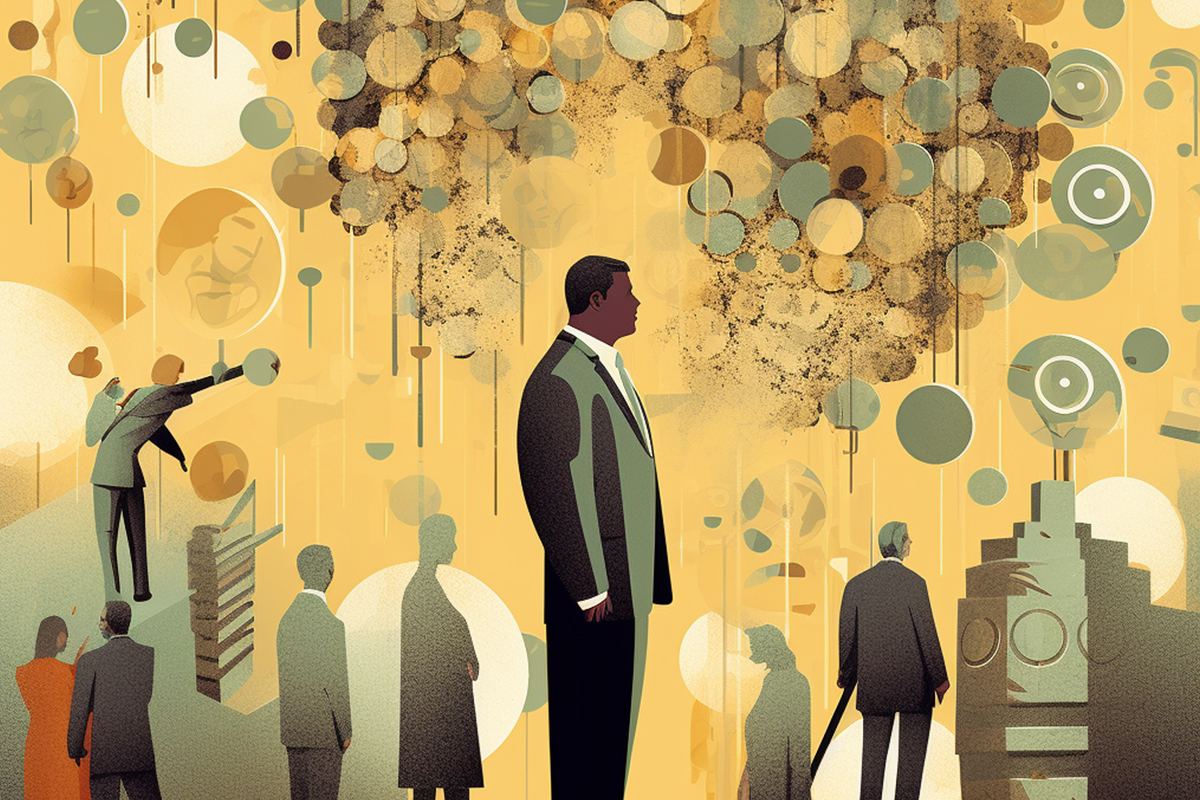Are you looking to expand your understanding of the economy and its impact on society? Look no further than this list of the best economics books to read. From classic to contemporary, these books cover a range of economic theories and issues that are relevant to today’s world.

Why Read Economics Books?
First, let’s explore why it’s important to read economics books. In the aftermath of the COVID-19 pandemic, the world’s economy is facing unprecedented challenges. Unemployment rates have skyrocketed, and the global economy has seen significant disruptions. As a result, it’s more important than ever to understand economic theories and trends that can help navigate this new landscape.
Understanding the Post-Pandemic Economy
One of the most pressing economic issues is the post-pandemic recovery. Economists are grappling with questions like: How will the economy recover? What will the post-pandemic world look like? One book that explores these questions is “The New Great Depression” by James Rickards.
Rickards draws on his years of experience as a financial expert to explore the impacts of COVID-19 on the world’s economy. He argues that the pandemic has accelerated trends that were already happening, such as the rise of automation and the decline of brick-and-mortar retail. He also offers predictions for what the future holds and how we can prepare for it.
The COVID-19 pandemic has brought about an unprecedented economic crisis that has affected people from all walks of life. The pandemic has led to widespread job losses, business closures, and economic instability. The government has implemented various measures to mitigate the impact of the pandemic, such as stimulus packages and unemployment benefits. However, the long-term effects of the pandemic on the economy are still unclear. Reading books like “The New Great Depression” can help us gain a better understanding of the post-pandemic economy and how we can navigate it.
Another book that’s relevant in today’s uncertain economic climate is “The Black Swan” by Nassim Nicholas Taleb. The book argues that unpredictable events have a much larger impact on the world than we realize, and that we need to be better at preparing for them.
Taleb uses examples from history and current events to make his point, and offers advice for how to navigate this uncertainty. He also challenges conventional economic theories and argues that they don’t take into account the unpredictable nature of the world we live in.
Economic uncertainty is a fact of life. There will always be factors that are beyond our control that can impact the economy. The COVID-19 pandemic is a prime example of this. The pandemic has disrupted the global economy in ways that no one could have predicted. However, books like “The Black Swan” can help us prepare for the unexpected and navigate economic uncertainty.
Gaining Insight into Global Economic Trends
If you’re interested in gaining a broad understanding of economic trends around the world, “The Rise and Fall of Nations” by Ruchir Sharma is a must-read. Sharma is a global investor who has traveled to countries around the world to study their economies in-depth.
In the book, Sharma identifies the factors that contribute to a nation’s economic success or failure. He looks at everything from political stability to demographics to offer insights into the global economic landscape. This book is a fascinating glimpse into the interconnectedness of economies around the world.
Globalization has made the world more interconnected than ever before. Economic trends in one part of the world can have a ripple effect on economies around the globe. Reading books like “The Rise and Fall of Nations” can help us gain a better understanding of the global economic landscape and how different factors contribute to economic success or failure.
In conclusion, reading economics books is more important than ever. The COVID-19 pandemic has brought about unprecedented economic challenges, and understanding economic theories and trends can help us navigate this new landscape. Books like “The New Great Depression,” “The Black Swan,” and “The Rise and Fall of Nations” offer valuable insights into the post-pandemic economy, navigating economic uncertainty, and global economic trends.
Top 5 Classic Economics Books
Now that we’ve covered some contemporary books, let’s delve into some classic economics books that are still relevant today. These books have shaped the way we think about economics and have had a lasting impact on economic theory and policy.
The Wealth of Nations by Adam Smith
Published in 1776, “The Wealth of Nations” is one of the most influential books in the history of economics. Smith’s book argues that free markets and competition are the keys to a prosperous society. He also offered insights into the division of labor and the specialization of trades.
Smith‘s ideas were revolutionary at the time, as they challenged the prevailing mercantilist view that wealth was finite and that nations should hoard resources. “The Wealth of Nations” was a call for economic freedom and individual liberty, and it remains a foundational text in economics.
Smith’s ideas have been influential in the development of capitalism and have been used to argue for free-market policies around the world. However, his ideas have also been criticized for not taking into account the negative externalities that can result from unregulated markets.
Capital in the Twenty-First Century by Thomas Piketty
“Capital in the Twenty-First Century” caused a sensation when it was published in 2014. Piketty’s book argues that the concentration of wealth in the hands of a few is a destabilizing force in society. He also argues that the rate of return on capital is higher than the rate of economic growth, which leads to an ever-increasing wealth gap.
Piketty‘s book has sparked a global conversation about income inequality and has led to calls for policies to address wealth inequality. His ideas have been influential in the development of progressive economic policies, such as higher taxes on the wealthy and the implementation of a wealth tax.
However, Piketty’s ideas have also been criticized for not taking into account the role of innovation and entrepreneurship in driving economic growth, and for not considering the potential negative effects of wealth redistribution on incentives to work and invest.
The General Theory of Employment, Interest, and Money by John Maynard Keynes
Published in 1936, Keynes‘ “The General Theory of Employment, Interest, and Money” challenged classical economic theory and argued for government intervention in the economy during times of economic downturns. Keynes argued that during times of recession, government spending could stimulate demand and create jobs, helping to boost the economy.
The book was influential in the development of Keynesian economics, which emphasizes the importance of government spending to stimulate the economy. Keynes’ ideas have been particularly relevant in the wake of the 2008 financial crisis and the COVID-19 pandemic, as governments around the world have implemented stimulus measures to support their economies.
However, Keynes’ ideas have also been criticized for not taking into account the potential negative effects of government intervention on economic growth and for not considering the long-term consequences of government debt.
The Road to Serfdom by Friedrich Hayek
Published in 1944, “The Road to Serfdom” is a critique of socialism and central planning. Hayek argues that these systems lead to a loss of individual freedom and a lack of innovation in the economy. He argues that only a free-market system can allow for individual liberty and economic growth.
The book has influenced policymakers and economists around the world, particularly those who advocate for free-market capitalism. Hayek’s ideas have been used to argue against government intervention in the economy and to support policies that promote economic freedom.
However, Hayek‘s ideas have also been criticized for not taking into account the potential negative effects of unregulated markets on inequality and for not considering the role of government in ensuring a level playing field for all participants in the economy.
A Random Walk Down Wall Street by Burton Malkiel
“A Random Walk Down Wall Street” is a classic book on investing that argues for a passive approach to investing. Malkiel argues that it’s impossible to consistently beat the market, and that investors should take a diversified approach to investing.
The book offers practical advice on how to invest and has influenced generations of investors and financial advisors. Malkiel‘s ideas have been used to argue for index funds and other passive investment strategies.
However, Malkiel’s ideas have also been criticized for not taking into account the potential benefits of active management and for not considering the role of market inefficiencies in creating opportunities for outperformance.
Top 5 Contemporary Economics Books
Finally, let’s round out our list with some of the best contemporary economics books.
The Price of Inequality by Joseph Stiglitz
Joseph Stiglitz is a Nobel Prize-winning economist who has been a vocal critic of income inequality. “The Price of Inequality” explores how the concentration of wealth in the hands of a few has led to economic instability and social unrest.
The book offers policy solutions to address inequality, such as progressive taxation and investment in education and training programs.
Doughnut Economics by Kate Raworth
“Doughnut Economics” offers a new vision for the economy that takes into account both human prosperity and environmental sustainability. Raworth argues that the traditional economic model is leading to environmental destruction and social inequality.
The book offers a framework for an economy that is regenerative and sustainable. It has been influential in the growing movement for a more sustainable economy.
The Undercover Economist by Tim Harford
“The Undercover Economist” is a fascinating exploration of the hidden forces that drive the economy. Harford takes readers on a journey through the everyday products and services we use, from coffee to insurance, to show how the economy works.
The book uses real-world examples and accessible language to make complex economic concepts easy to understand.
The Shock Doctrine by Naomi Klein
“The Shock Doctrine” argues that elites have used times of crisis, such as natural disasters or economic downturns, to push through neoliberal policies that benefit the rich at the expense of the poor. Klein looks at examples from around the world, from Chile to Iraq, to make her argument.
The book has been influential in the anti-globalization movement and in the push for more equitable economic policies.
The Great Divide by Joseph Stiglitz
“The Great Divide” is another book by Joseph Stiglitz that explores income inequality. He argues that the growing gap between the rich and poor is not only a moral issue but also an economic one that is harming the overall health of the economy.
The book offers a range of policy solutions that could address inequality, from progressive taxation to investment in education and infrastructure.
Conclusion
From classic to contemporary, these economics books offer insights into the world’s economy and the challenges it faces this year and beyond. Whatever your interest or expertise, there’s something on this list for everyone. So go ahead, pick up a book, and expand your economic knowledge.
FAQs
What are the benefits of reading about economics?
Reading about economics can not only help you understand more about your own finances and the economic systems running in businesses but it can prove useful on an international scale and help you understand more about the economics of different countries.
Is economics useful?
Economics is hugely useful. It is one of the foundations of every business and nation and can help you make financial decisions for yourself.
What are the best economic books out there?
Serious Money by Caroline Knowles, Work Pray Code by Carolyn Chen, and Disorder by Helen Thompson are all great economic books.
- The 11 Best Books About Cats You Should Read - January 16, 2024
- The 9 Best Books on Building Confidence - January 16, 2024
- Discover the 10 Best Books on the Brain - January 16, 2024









